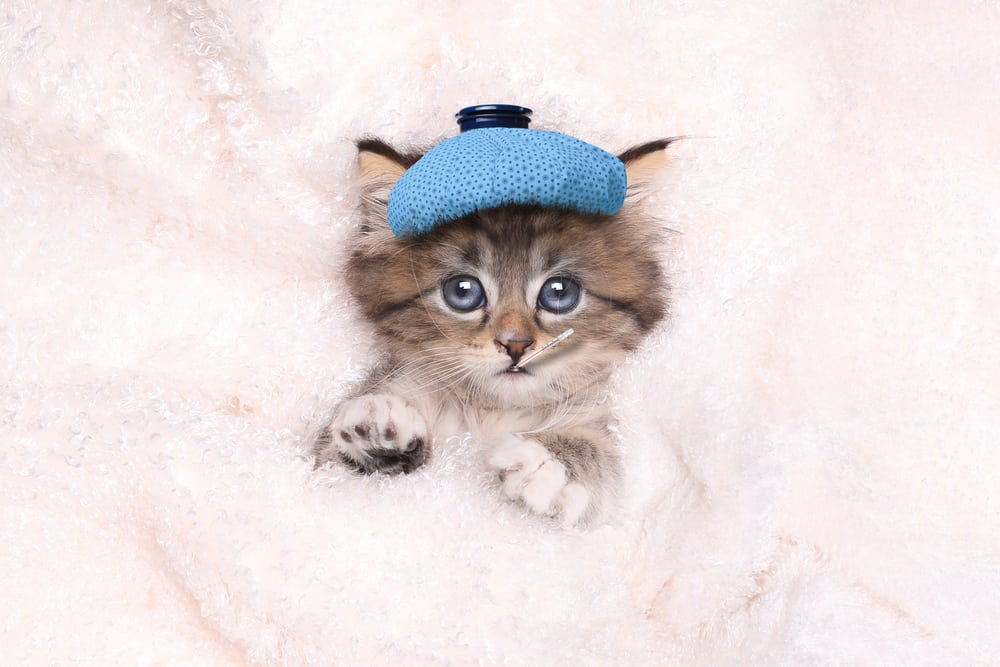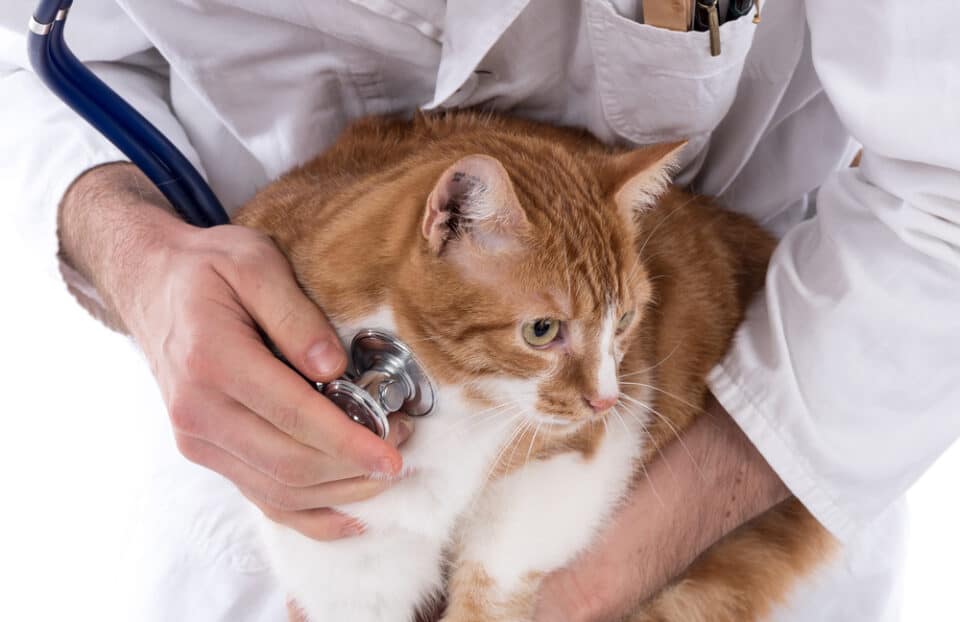Contents
All products and services on Project PAWS are independently selected by our editors, contributors, and veterinary experts. This post contains affiliate links. As an Amazon Associate I earn from qualifying purchases.To learn more, view my disclosure policy.
Last Updated on October 28, 2020 by Aimee
The Most Common Health Problems In Cats: Most of the time, cats are very easy to keep healthy. By providing them adequate food and water, a place to stay warm and toys for enrichment, they will remain healthy and happy. Sometimes cats do become sick and need veterinarian care. These are some common diseases they are seen in cats and what you need to do to help your cat return to their healthy life.
Diabetes
As a cat age, they can develop diabetes. This is very similar to diabetes in people where you would have to give your cat insulin shots every day. Diabetes is caused by high blood sugar in the body and the pancreas not producing enough insulin to decrease blood sugar. Common signs that your cat may have diabetes are:
- Drinking a lot of water
- Urinating more than normal
- Losing weight
- Lethargic
- Vomiting
If you notice any of these signs in your cat, schedule an appointment with your veterinarian. They can run a blood test to check to see if your cat has diabetes. If your cat does have diabetes, they will prescribe them insulin to take. This decrease their blood sugar. You would have to give your cat an injection every day.
There are a few things that you can do to help decrease the chance of your cat getting diabetes, such as:
- Trying to keep your cat at a healthy weight. Overweight cats are more likely to develop diabetes than healthy weight cats.
- Do not overfeed treats. Some cat treats are high in sugar; this can lead to diabetes.
- Feed your cat a good quality diet. Most cats need foods high in protein and lower in carbs. High carb diets can also lead to diabetes.
- Schedule regular checkups for your cat. Your veterinarian can help you catch illnesses early in your cat.
By doing these few things, you can help keep your cat happy and healthy.
Kidney disease
Kidney disease is commonly seen in older cats. As your cat ages, your veterinarian will want to run blood work to check for kidney disease or other diseases in your cat. Kidney disease is commonly found in older cats. Signs that your cat has kidney disease are:
- Drinking more water
- Urinating more
- Weight loss
- Lethargic
- Foul odor coming from their mouth
- Not eating
- Vomiting
- Diarrhea
If you notice any of these signs, schedule an appointment with your veterinarian. They can help you figure out if your cat is suffering from kidney disease. When your cat is first diagnosed with kidney disease, they may need IV fluids and to stay in the hospital to flush their kidneys and get them back to functioning correctly.
If your cat does have kidney disease, there are a few things that you can do to help them live a long quality life. Many cat food companies make a diet specifically for kidney problems. There are also kidney supplements that your cat can take. By feeding your cat these diets and giving them supplements, their kidneys can still function, and your cat can live a long and happy life.
Hyper-thyroid
Hyperthyroid is another disease seen in older cats. As they age, their thyroid will start to over function, causing increased thyroid levels circulating in the body. Signs seen in cats with hyperthyroidism are:
- Weight loss despite eating more
- Increase heart rate
- Unkempt appearance
If you notice these signs in your cat, schedule an appointment with your veterinarian. They can run bloodwork to see if your cat has thyroid problems. There are three different options for treating hyperthyroid.
- Daily medication. You can give your cat a pill every day to help decrease the thyroid levels in their bodies. This would be life long medication
- Surgical removal of the thyroid. Your veterinarian can remove your cat’s thyroid. Usually, only one is removed, and the other is left to produce thyroid hormone for the body. Sometimes both need to be removed. Side effects of surgery are that your cat may become hypothyroid.
- I-131 radiation. Your cat can receive a dosage of radiation. They would have to spend a week and a specialty hospital while undergoing radiation treatment.
Talk to your veterinarian about what treatment option is best for your cat. Cats with hyperthyroid that are well managed can live a long and healthy life.

Cancer
Just like with people as cats age, there is an increased risk for cancer. Cats commonly get 3 different types of cancer.
- Lymphoma
- Soft-Tissue sarcoma, and
- Squamous cell carcinoma
Lymphoma is the most common of these three. Signs commonly seen in cats with cancer are:
- Vomiting
- Diarrhea
- Not eating
- Lethargic
If you notice any of these symptoms in your cat, schedule an appointment with your veterinarian. They can thoroughly examine your cat and help you figure out what is causing these signs. Many tests can be done to see if your cat does have cancer. While cancer is never a good diagnosis to hear, there are many different treatment options that your veterinarian can discuss with you to help your cat live as long and pain-free as possible.
These are the 4 most common disease seen in cats. While some are manageable for a long time, some can be very devastating news. Talk with your veterinarian on different treatment options, and they can help you decide on the best possible treatment to help your cat live a healthy and happy life.

